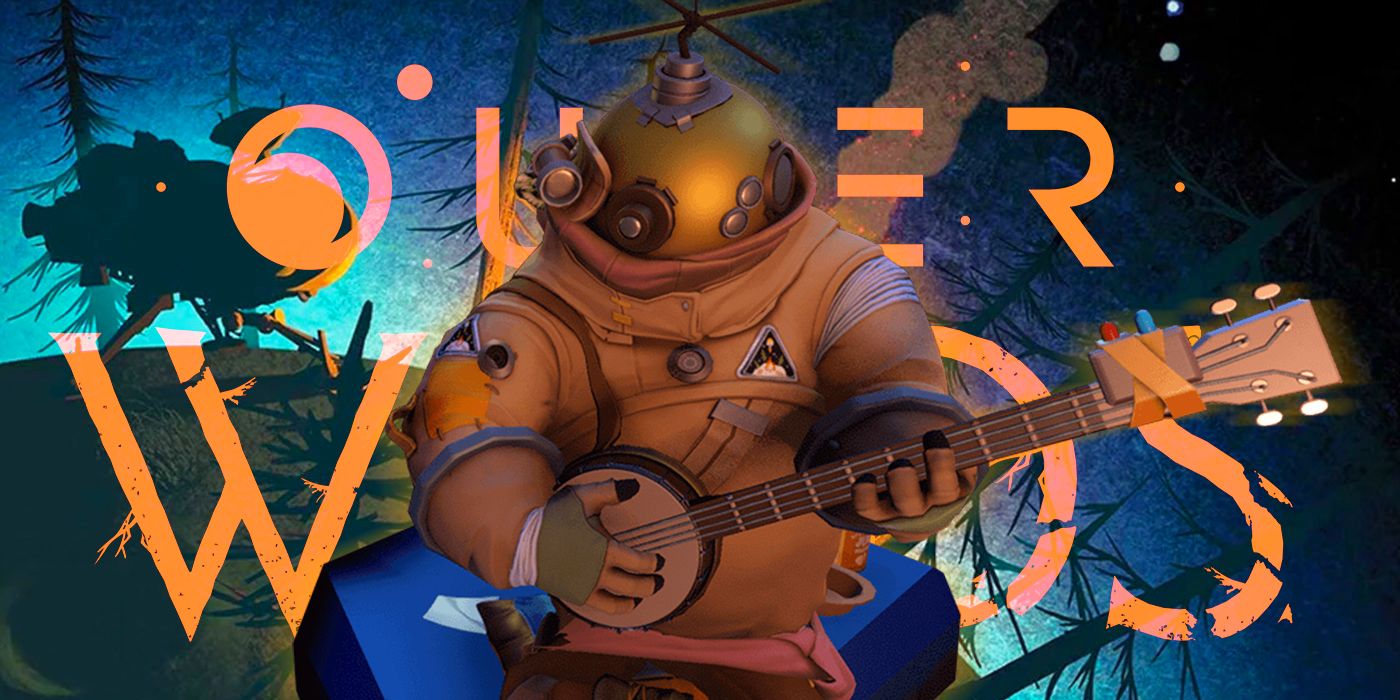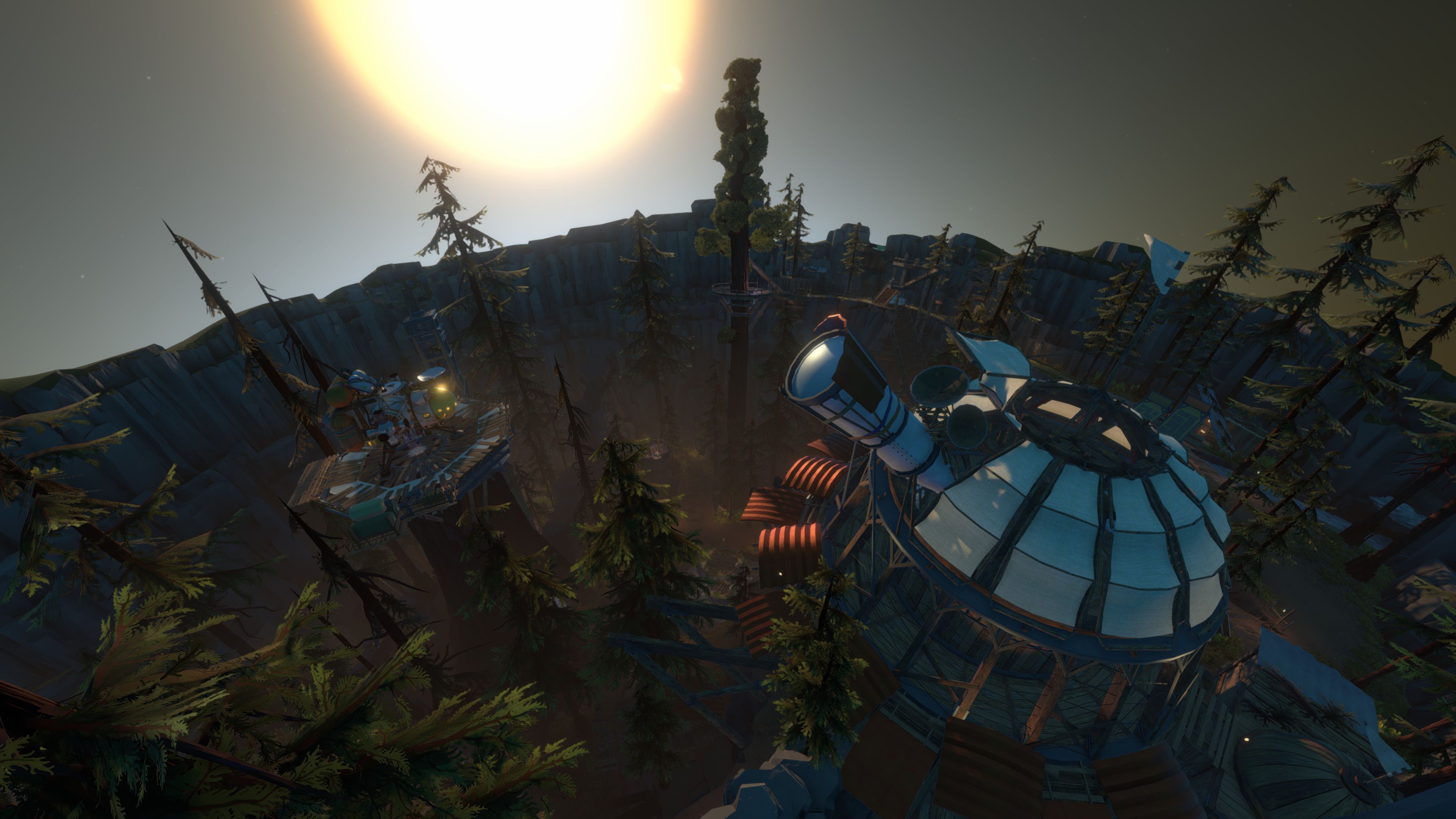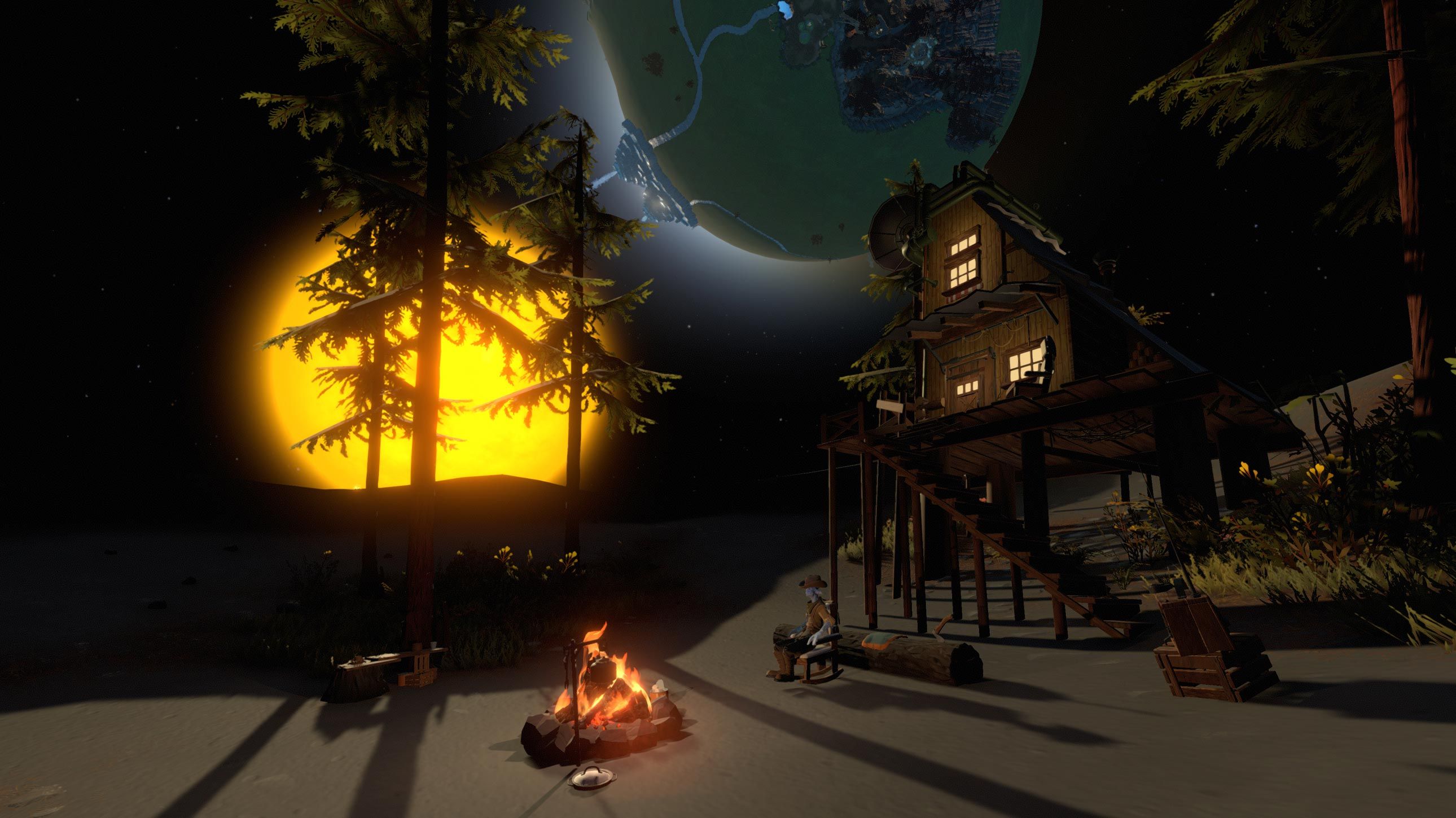Officially releasing in 2019, Outer Wilds is an expansive open-world indie game. This game is as much charming as it is challenging. It has a captivating storyline that spans across both space and time. It currently has a rating of 85 on Metacritic and made Polygon's best games of the decade list. With such great reviews, it is a pity that so few people are talking about it.
Outer Wilds follows an alien from a tiny wooded planet. These small beings inhabit a solar system that was inhabited by an ancient race thousands of years ago. The technology left behind is what fostered a superior space program, rocketing them quickly into the stars. The design of the game makes the aliens seem primitive -- their city is small and sparse, and their rockets are made from wood, but the incorporation of "ancient technology" makes it work well. The aesthetics are cute and colorful, with beautiful skies shifting from day to night, which brings up the best aspects of the game: the story and the physics. The player is tasked with unlocking the puzzles left by the ancient race across the solar system in order to figure out where they came from and where they went… and save life as they know it within 22 minutes.
Everything about this game runs on a time loop. At the 22 minute mark, the sun explodes, everyone dies, the game ends, and the cycle resets. Puzzles and items found during one loop won't translate to the next. The only thing the player brings with them is information. Secret pathways make each play through a little shorter and help the player discover a little more about the world before the world ceases to be.
One of the best aspects of The Outer Wilds is its gameplay. The game has fairly unique physics when it comes to navigating the stars. Indicators show players how much gravity is present and which direction they're traveling in the vast reaches of space. Due to its time loop mechanics, each planet the player lands on changes as time goes on. This makes certain places accessible only at certain times before the game starts over.
With so much to explore and discover, it is a wonder why so few people are talking about this game. One red flag that keeps fans from this game is its name. Outer Wilds is a very similar name to The Outer Worlds. Both games were released within five months of each other, and while Mobius Digital developed Outer Wilds, The Outer Worlds belongs to Obsidian, a well-known game developer with a large marketing budget. As a way to generate funds, Mobius Digital turned to crowdfunding and became the first game offered on Fig, a crowdfunding platform for video games.
Another thing that may have kept this game under the radar for many people is how long it was available in its alpha stage. Any players interested in the game were able to download an alpha version of Outer Wilds free since 2015. Many fans who were interested in playing the game did so for free, meaning many may have been unlikely to buy it when it officially released.
Indie games tend to be some of the most difficult to get off the ground. Without the pressure of a larger parent company, many of these games are unique and memorable. It is up to fans to make sure these wonderful games get heard.



